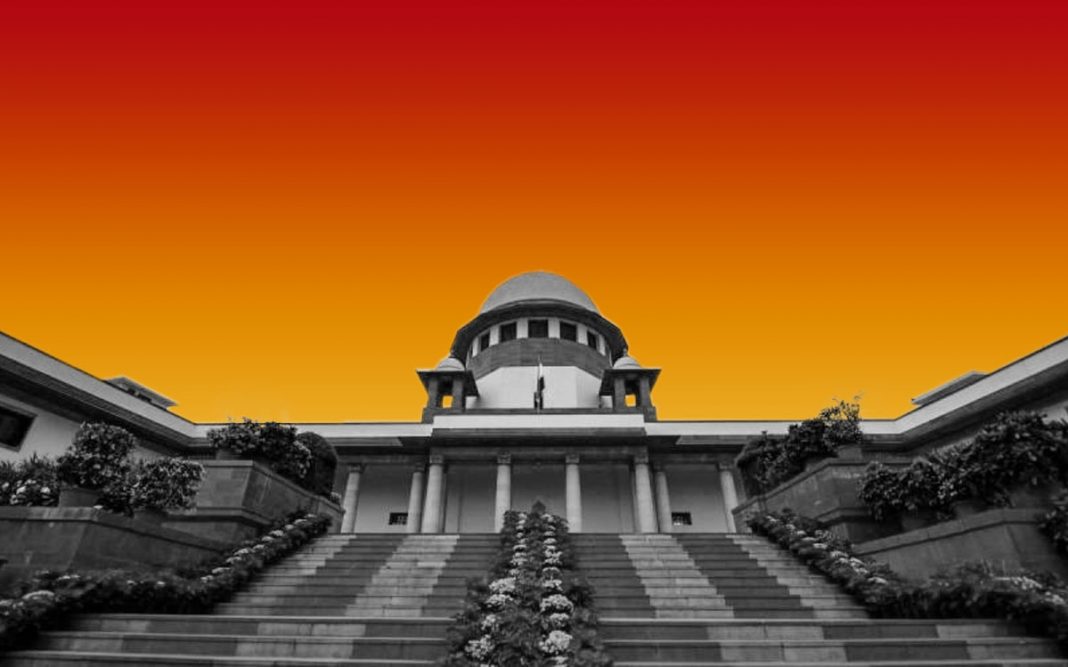The Supreme Court has said that it will not deciding again the policy for determining backwardness, which had already been decided in the previous laid down judgments in case of M. Nagaraj and Jarnail Singh, while hearing a batch of over 130 petitions on the implementation of reservation policy.
The Court said,
“We have already passed orders on how to consider backwardness, we cannot prescribe policy further. It is for the States to implement policy and not for us to prescribe. We are not going to decide on issue of Article 16(4) and 16(4a) of the Constitution.”
The three-judge bench of Justices L. Nageswara Rao, Sanjiv Khanna and B.R. Gavai told Attorney General K.K. Venugopal that they will not reopen the issues already decided in the Nagaraj Judgment. Venugopal had asked for the separation of issues applicable to the Centre and to the states.
The Attorney General informed the Court that 4,100 promotions have been done on ad-hoc basis subject to outcome of the case with no reservation. Another 2,500 posts have been standing vacant due to the status quo orders which are for regular promotions. He asked for the separation of issues applicable to the Centre and to the states.
Senior Advocate Indira Jaising, appearing for the petitioner, submitted to the court how would states decide as to which groups are backwards and shall establish the fact that such representation is adequate which is provided by them.
Also Read: Supreme Court dissolves 20-year-old marriage that was never consummated
At this, the bench said,
“It’s not for us to tell the government how to implement policy. Directions have been passed in the Nagaraj judgment that it is for each state to finalise how they will implement.”
Jaising replied but the high courts are interfering with how the states are implementing. A ruling from this court is needed on what is considered “adequacy” in law.
Senior Advocate Rajeev Dhavan submitted that this is not the first time that a large batch of cases has come before this court on this issue. Multiple states have come to the court. It can divide them into batches and let them submit written submissions.
The Supreme Court agreed and said, “The suggestion of Mr Dhavan seems adequate to us. We can divide the cases into batches.” Further, it has directed that within 4 weeks, written submissions be filed by the parties with all the precedents they are relying upon.
Also Read: Supreme Court says life imprisonment means rigorous imprisonment for life, dismisses SLP
The 2006 judgment of the Supreme Court in M. Nagaraj & Others vs Union of India upheld the validity of Article 16 (4A) — a special provision which provides for reservation for promotion only to SCs and STs and the government can provide reservation in promotions, provided it is backed by persuasive reasons such as proof of backwardness and inadequacy of representation and to make sure that it does not affect the overall efficiency of administration.
M. Nagaraj also held that the states should gather quantifiable data showing backwardness and such observation is in contravention of Indra Sawhney judgment which was passed by a 9-member bench of the court. The Constitution Bench of 5 judges, however, expressed their opinion since Article 16(4a) and left for the states to make adequate representation in posts for promotion to SC and ST categories.
On September 26, 2018, the Constitution Bench, headed by the then CJI Deepak Misra, former Justice Kurian Joseph, former Justice R.F. Nariman, Justice Sanjay Kishan Kaul and former Justice Indu Malhotra reached the conclusion that the judgment in Nagaraj (supra) does not need to be referred to a seven–judge bench.


